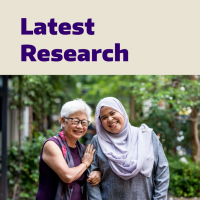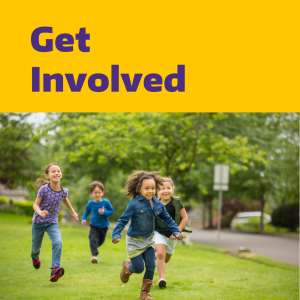Summer Quarter 2024 Newsletter

Updates From the Team at Nature and Health
Welcome to the fall edition of our Nature and Health Newsletter! As the leaves begin their vibrant transformation and a crispness settles into the air, we’re thrilled to dive into a season of exciting updates and opportunities. Inside, you’ll find details on our upcoming events, our latest research and publications, and ongoing efforts to ensure everyone has access to the great outdoors.
UPCOMING EVENTS
 Fall Community Dinner: Nov. 20, 2024
Fall Community Dinner: Nov. 20, 2024
Featuring guest speaker: Dr. Adithya Vegaraju
Join the Nature and Health community for an evening of cross pollination, networking, and discovery. Our next community dinner will be held on Nov. 20 from 6:30 – 8:30 PM at Ravenna Brewing Company. Dr. Adithya Vegaraju will share his work on the connection between urban green and blue spaces and mental health among older adults in Washington state. Our dinners feature a vegan meal, drinks, and an opportunity to interact with professionals and community members who are working to improve access to nature and its benefits for everyone.
Northwest Nature and Health Symposium: May 21, 2025
Mark your calendars! The 2025 Northwest Nature and Health Symposium will be held on May 21 at the Intellectual House in Seattle. Look out for early bird registration and more details this fall. In the meantime, check out the summary of our 2024 symposium to see what you can look forward to.
 Latest Research
Latest Research
This year, our Research Collaborative has co-authored 16 papers on various nature and health topics, ranging from emotion regulation to pedestrian health. Below are a few highlights:
Nature and Human Well-Being: The Olfactory Pathway
The sense of smell influences quality of and satisfaction with life, emotion, emotion regulation, cognitive function, social interactions, dietary choices, stress, and depressive symptoms. Exposures via the olfactory pathway can also lead to (anti-)inflammatory outcomes. Listen to the interview
Healthy by Nature: Policy Practices Aimed at Maximizing the Human Behavioral Health Benefits of Nature Contact
Much of nature and health research has focused on specific groups and hasn’t considered how different cultures view nature. This could make it tricky for policymakers to create effective nature-based policies, especially in culturally diverse places like the United States. To address this, policy recommendations should aim to maximize the benefits of nature while being flexible enough to meet the needs of different communities.
Individual and Neighborhood Level Predictors of Children’s Exposure to Residential Greenspace
Access to parks and green spaces varies by socioeconomic status across the US. A team of researchers measured how various neighborhood factors affect the amount of green space in different cities.
 Get Involved
Get Involved
Share Your Passion for Nature
Calling all poets and nature enthusiasts! The Nature of Our Times—a poetry companion to the First National Nature Assessment—invites you to share your poetic reflections on the profound significance of nature. Organizers are looking for work that speaks to the immense value of nature—for our children and future generations, for our own and the planet’s well-being, and the resilience and survival of our communities. Submission deadline: January 15, 2025
Learn More and Submit Your Entry
Your Voice Matters
There are many ways we can work together to encourage decision makers to support and expand equitable access to nature and its benefits. In communities across the country with less tree coverage, people experience higher temperatures and energy costs, lower home values, worse air quality and higher rates of asthma. Encourage Congress to pass the SHADE Act to ensure that all neighborhoods have enough trees.
Learn More and Submit Your Entry
 Resources
Resources
Free National and State Park Days
From lush temperate rainforests and rugged coastlines to alpine meadows and glacier-capped peaks, the Pacific Northwest is home to an abundance of diverse state and national parks. During select holidays throughout the year, entrance to some parks are free. These fee-free days provide a great opportunity to visit a new place or an old favorite.
Self-Guided Forest Bathing
How do you relax and recharge? You are invited to learn and practice forest bathing, a nature immersion activity that has been shown to increase health and well-being. To get started, check out the handout or follow along with the audio guide, courtesy of UW Botanic Gardens.
UW Campus Nature
There are many different ways people interact with nature, and it can happen on various scales. UW Sustainability has put together some resources to help the UW community connect with nature, whether that means taking a quick break on campus or getting away from the urban environment for a hike or other activity.
 Join Our Community
Join Our Community
We invite you to join our different channels to learn more about the Nature and Health movement and to connect with others in the field.
- Opt into our newsletter
- Sign up for our listserv
- Join us on Facebook, Instagram, and LinkedIn
Interested in collaborating with us? Let us know at natureandhealth@uw.edu!
 Support Our Work
Support Our Work
Nature and Health’s cross-cutting research and policy engagement improves the lives of our communities. With your support, we can better understand how nature affects human health, how to best leverage these benefits, and how to implement policies that make nature more accessible to all communities.
Contributions of any size will help sustain our cutting-edge research, our community-building efforts, recognize equitable leaders in the field of nature and health, and support the next generation of researchers.